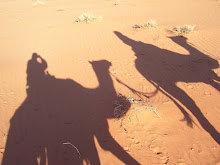TUNIS — Still shaken on Friday by a brazen attack that killed 23 people at the National Bardo Museum
in the heart of the capital two days before, Tunisian officials spent
their Independence Day — a public holiday here — evacuating dead and
wounded foreign tourists and burying their own.
Families
of the dead and wounded have begun arriving in Tunis, alongside a trail
of foreign politicians and diplomats to bring the casualties home. Four
Polish tourists were medically evacuated by military plane Friday
afternoon and two French women were transferred back to France. Three
Italians were sent home Thursday night.
A
group of Italians clung to one another as they walked down the sloping
ramp in the dark to the morgue Thursday evening to identify a relative.
Two men rocked in an embrace for long minutes before linking arms with a
female companion and going inside the building together.
“It’s
so sad, it’s overwhelming,” said a Tunisian anesthetist as she watched
groups of foreigners driven through the hospital gates. She declined to
be identified citing Ministry of Health rules, but expressed shock and
dismay at the attack that killed so many foreign visitors.

An Italian survivor of a deadly attack on Wednesday recounted the ordeal from her hospital bed in Tunis.
Video by Sky Italia on
Publish Date March 19, 2015.
Photo by Sky Italia, via Reuters.
The
Tunisian government has mobilized a small army of medical personnel,
security officials and protocol officers to handle the casualties and
assist the families as the country has been overwhelmed by anger and
remorse at the Wednesday attack.
Souad
Sadraoui, the general director of the hospital, abandoned her
third-floor office and took to running affairs from the hospital’s main
parking lot to be closer at hand. Standing in a black overcoat and
shoes, she fielded calls on her cellphone with one hand, juggling a
folder of documents and a portable charger in the other.
“It
is horrible, what happened, it is a catastrophe for us all,” she said.
“I hope the terrorists will reflect that these people have nothing to do
with anything.”
A
team of 10 psychologists has been working around the clock since the
attack, counseling victims and their relatives. Part of a national
crisis cell trained and prepared to handle natural disasters and health
outbreaks, they have never had to deal with such a large-scale disaster,
Dr. Anissa Bouasker, the head psychiatrist, said.
Members
of her team were on hand at the scene of the shooting and escorted
terrified tourists to the hospital and back to their cruise ships. Some
of the victims were prostrate with fear and uncomprehending of events,
she said. Some were so afraid they hid inside the museum and did not
want to come out, she added. That included a Spanish couple who stayed
hidden all night in a storeroom in the museum.
Although
most of the wounded are out of danger — one woman remains in serious
condition — some have been severely traumatized, she said.
In
his Independence Day speech to the nation, President Beji Caid Essebsi
talked of the importance of national unity to confront terrorism. He
said that members of the Islamic State had claimed responsibility for the attack and added that his security officials considered that they were indeed responsible.
Families
of the dead and wounded began arriving Thursday. “Some do not accept
what happened, some are torn by guilt, for example because they had
offered the cruise as a gift to their parents and then this happened,”
Dr. Bouasker said. “We talk to them, we get as much information as
possible for them, some had seen videos and had even seen film of their
relatives.”
“The
hardest to handle are the families of the dead,” she added. “The
families are arriving to identify them, and they are lost, they don’t
know where they are, they are disoriented, dissociative.”
Identifying
the dead and wounded has been a difficult and painful experience, the
head of the morgue said. Some of the victims were badly disfigured in
the shooting, doctors said, but the greater difficulty has been reaching
family members and bringing them to Tunisia to identify the deceased.
One of the dead carried an Australian passport but proved to be of
Colombian origin, and his closest relatives live in Colombia, they said.
A
Belgian tourist in his 60s who was shot in the legs lay in the hospital
for 24 hours before he learned that his wife had been killed. Separated
in the panic when gunmen first opened fire at the museum, he ran inside
to hide and was shot when the attackers pursued them. For hours after
he was evacuated he asked about his wife, but it was only a day later
that doctors brought him photos of her jewelry and told him she was
lying below in the morgue.
“It’s
not easy, and then there is a whole heavy load of paperwork they have
to do so our help is practical as well as spiritual,” Dr. Bouasker said.
Then there have been special demands. Japanese families explained that
their tradition was to sit up all night with the deceased. That was not
possible but somehow they tried to accommodate them, she said without
being specific. “We have tried to be sensitive,” she said.
Another
relative asked for a second autopsy so that a metal pin could be
removed from the body to prepare it for immediate cremation on arrival
home.
For
the weekend, the psychologists will open their doors for Tunisians who
were working at the museum or were caught up in the attack.
